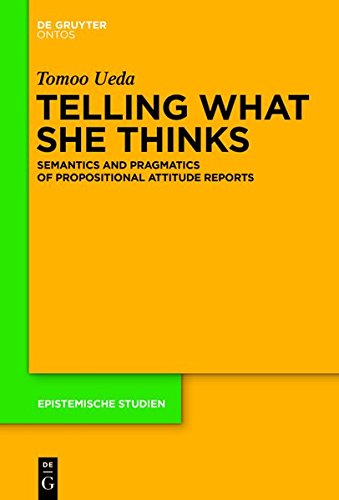

Most ebook files are in PDF format, so you can easily read them using various software such as Foxit Reader or directly on the Google Chrome browser.
Some ebook files are released by publishers in other formats such as .awz, .mobi, .epub, .fb2, etc. You may need to install specific software to read these formats on mobile/PC, such as Calibre.
Please read the tutorial at this link: https://ebookbell.com/faq
We offer FREE conversion to the popular formats you request; however, this may take some time. Therefore, right after payment, please email us, and we will try to provide the service as quickly as possible.
For some exceptional file formats or broken links (if any), please refrain from opening any disputes. Instead, email us first, and we will try to assist within a maximum of 6 hours.
EbookBell Team

0.0
0 reviewsFrege’s puzzle concerning belief reports has been in the middle of the discussion on semantics and pragmatics of attitude reports: The intuition behind the opacity does not seem to be consistent with the thesis of semantic innocence according to which the semantic value of proper names is nothing but their referent.
Main tasks of this book include providing truth-conditional content of belief reports. Especially, the focusis on semantic values of proper names. The keyaim is to extend Crimmins’s basic idea of semantic pretense and the introduction of pleonastic entities proposed by Schiffer. They enable us to capture Frege’s puzzle in the analysis without giving up semantic innocence.
To reach this conclusion, two issues are established. First, based on linguistic evidence, the frame of belief reports functions adverbially rather than relationally. Second, the belief ascriptions, on which each belief report is made, must be analyzed in terms of the measurement-theoretic analogy.